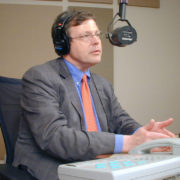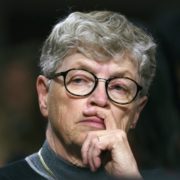|
Issued by The Drake Group
|
|
NEW HAVEN, CONN. – Like many interested parties, The Drake Group was underwhelmed by the recent verdicts that came after nearly two years of investigation into the men’s basketball bribery scandal. Over twenty months ago, the U.S. Attorney for the Southern District of New York announced that after a vast federal investigation, it had “the playbook of the offenders” and would expose “the dark underbelly” of big-time men’s college basketball. In the end, several nondescript advisors, assistant coaches and an Adidas executive were convicted of a few minor criminal charges and sentenced to short prison terms. They were acquitted of most of the charges. On the whole, the trials did not expose anything new, only what everyone already knew, that systemically the NCAA’s amateurism rules are not followed. The NCAA’s reaction to the indictments was to create the blue-ribbon Rice Commission, named after former Secretary of State Condoleezza Rice. Although the Commission suggested a few possible changes, it failed to dig into issues that would have made a real difference. For example, it specifically stated that it would not address whether athletes should be permitted to profit from the use of their own names, images, and likenesses (NILs). And, significantly, the report contained nary a word about education and no acknowledgement of the causative role of the NCAA’s so-called amateur status rules in driving under-the-table payments to athletes. In the end, the Commission’s report and the NCAA’s subsequent adoption of its suggestions focused more on maintaining the status quo and choosing the path of least damage to the current highly commercialized collegiate basketball enterprise.
The NCAA, despite no bylaw prohibiting it from acting on its own and investigating these issues, decided to wait and “let the FBI do their work.” Now that the trials are completed, the NCAA has announced it is finally doing its own investigation and apparently will rely on much of the information discovered during the FBI’s investigation. Further, the NCAA has tasked a committee to examine the NIL issue. The Drake Group urges the NCAA to use this opportunity to take a “deeper dive” in order to understand how this scandal is connected to the economic and educational exploitation of college athletes. Only by focusing on the causative factors of such exploitation can the NCAA make the decisions necessary to advance reforms that counter the negative pressures of highly commercialized college sport programs. The Drake Group believes this must be done in order to reclaim the academic and ethical integrity that should exist in all of our higher education endeavors.
Collegiate athletics has value, but the NCAA’s “education first model” does not exist in many Division I programs. The public has been misled into believing that college football and basketball players in particular are receiving enough educational value in return for their participation and contribution to revenue creation. Lest we accept this education deception, the recent college admissions bribery scandal exposed that a significant number of college athletes lack the academic credentials to meet normal college admissions criteria and are “specially admitted” so they can be exploited for their athletic skills and revenue-production contribution. What the media failed to recognize was the fact that these special athlete admissions are a root cause of academic fraud routinely committed by athletic programs. As long as underprepared college athletes enter the pressurized system of commercialized collegiate sport that requires far more time being spent on athletics than on meeting classroom demands, academic integrity is going to continue being the sacrificial lamb. Athletic departments create their own academic support programs, encourage underprepared athletes to take less demanding courses and academic majors, and choose athlete-friendly professors to keep athletes eligible to participate in sports. Provosts and college presidents turn their heads the other way rather than controlling the special admissions system despite clear knowledge that coaches are recruiting athletes who may be unable to compete in the classroom against their better prepared and regularly admitted non-athlete classmates.
It is the combination of six factors that precipitate college athlete economic exploitation and academic fraud: (1) unfair control of college athlete outside compensation, (2) the failure to restrain coaches from recruiting, and the enabling of such recruiting, specially admitted but academically underprepared athletes, (3) the failure to control athletic time demands, (4) acceptance of athletic departments operating academic support programs despite a clear conflict of interest, (5) the failure to install tenured faculty oversight and require transparency of college athlete academic data to address questionable athletic department academic counseling and support practices, and (6) the inability of the NCAA to legislate these controls because Football Bowl Subdivision members threaten to leave if they don’t have their way and maintain majority control of critical NCAA governance structures while their presidents engage in toothless rhetoric objecting to change in the name of institutional autonomy in academic matters. Both the NCAA and, generally, institutions with highly commercialized or emphasized athletic programs, are guilty of failing to initiate the necessary basic academic and ethical integrity reforms that would salvage the ethical soul of intercollegiate athletics. Thus, Congress must choose: step into the void or join college presidents in turning its head to the need for reform.
Lest this press statement be considered the empty rhetoric of college academic types, we emphasize that The Drake Group has offered detailed solutions (see all Drake position papers at https://thedrakegroup.org/policy-positions/official-positions/) to all of the failures listed above:
1. Unfair Control of College Athlete Outside Compensation. Athletes, like non-athlete students, should be allowed to engage in outside employment, including outside compensation for use of their names, images and likenesses as long as they do not use the mark or affiliation of their college or university, such employment is not arranged by the institution’s representatives of athletics interest, all such income is reported to their institution and such income does not exceed marketplace value. Further, all institutional athletic scholarships should extend to graduation (rather than one-year grants which effectively are employee at-will agreements). 2. Special Admissions. The percentage of athletes receiving special admission should not exceed their percentage within the undergraduate student body. In addition to the NCAA’s initial eligibility “qualifier” requirements, a one-year residency should be required prior to eligibility for athletic competition for all freshmen special admits whose high school grade point average or standardized test scores are below one standard deviation from the mean academic profile of the previous academic year’s entering class. Athletes restricted from competition under such a provision should (a) be eligible for athletics-related aid during their year of freshman ineligibility, (b) retain four years of athletic eligibility thereafter, (c) should not be required to adhere to normal academic progress requirements until the beginning of their sophomore year, (d) be limited to ten hours of practice per week and be required to participate in an institutional academic improvement plan designed to build academic skills during their year of freshman ineligibility. The intent of such a rule would be to allow up to 18 months of academic remediation prior to the beginning of the athlete’s sophomore year (3 months prior to admission as a freshmen, two semesters of the regular academic year and 3 months prior to the start of the athlete’s sophomore year without any minimum requirements other than full-time enrollment in remediation or other academic coursework not required to be applicable to a specific degree program during the remediation period. As important, such a transparent approach to remedying lack of academic preparation, would remove the pressure on athletic programs to engage in academic fraud. 3. Control of Athlete Time Demands. Loopholes in the current “20 hours per week” NCAA limit must be closed. The current rule that counts an athletic competition as three hours against the 20-hours-per-week limit, regardless of the actual length of the contest, should be strengthened to include a prohibition against requiring athletes to report for competition any earlier than two hours before the scheduled starting time for the event. Further, media and other traditional activities occurring at the conclusion of the event should not be permitted to extend past one hour following the end of the event. The practice of requiring players to stay in hotels prior to home games should be prohibited. Athletics activities should be prohibited during an eight-hour period between 9 p.m. and 6 a.m. The current requirement of one day off per week should be retained, but the current practice of allowing that day to include competition travel as long as the day does not include a competition or practice should be eliminated. All sports should have one competition-free semester to focus on academic demands. No individual or team competition schedule should result in athletes missing more than the equivalent of ten full class days, excluding post-season competition. 4. Prohibition of Athletic Department Controlled Academic Support Programs. Impose a rule that requires all academic counseling and academic support services for college athletes be (a) under the direct supervision and budgetary control of the institution’s academic authority, (b) administered externally to the athletics department and (c) consistent with counseling and support services available to all students. 5. Academic Transparency and Faculty Oversight. Require each NCAA member institution to have a tenured faculty Committee on Academic Oversight elected by the faculty senate, and annually reporting to the faculty senate regarding the graduation rates, academic status and academic qualifications upon admission of athletes and, when possible, comparing such data to non-athletes, including average SAT and ACT scores by sport, Federal Graduation Rates and CSRI Adjusted Graduation Rates by sport, Graduation Success Rates by sport, independent studies taken by sport, a list of professors offering the independent studies and their average grade assigned, admissions profiles, athletes’ progress toward a degree, trends in selected majors by sport, average grade distributions of faculty by major, incomplete grades by sport, grade changes by professors, and the name of each athlete’s faculty advisor. Only then will institutions be able to demonstrate a serious commitment to the prevention of academic fraud. 6. Inability of the NCAA to Legislate Necessary Reforms. The NCAA should be governed by Board of Directors consisting of expert “independent directors” who are not employed by any NCAA member institution and pledge not to prioritize the interests of any subset of member institutions. Such directors should have previously served for no less than five years in a leadership position directly related to the oversight of intercollegiate athletics or, in lieu of such leadership experience, have demonstrated expert knowledge of intercollegiate athletics. As a group, their composition should be representative of all athletics program stakeholders (presidents, trustees, athletic directors, tenured faculty, college athletes and the general public). The Board should also reflect diversity of gender, race and ethnicity and be charged with the fiduciary responsibility to act to advance the best interest of the entire organization, college athletics overall and college athletes generally as opposed to the special interests of competitive divisions, subdivisions or conferences. _____________
Dr. Fritz Polite, president of The Drake Group, commented: “These are changes that can happen now and are way past due. Too many athletic programs are providing lavish salaries for coaches and athletic directors and generating revenues for broadcasters, corporate sponsors and apparel companies while athletes themselves are unfairly restricted from making money on their own and too many athletes are not receiving the college educations they were promised. The NCAA and its member institutions have lost their moral compass. Thus, we ask that Congress act to appoint a blue-ribbon commission to examine all of these complex issues for the purpose of making recommendations for real reform and possibly making the adoption of such reforms conditions for federal higher education funding.”
|



